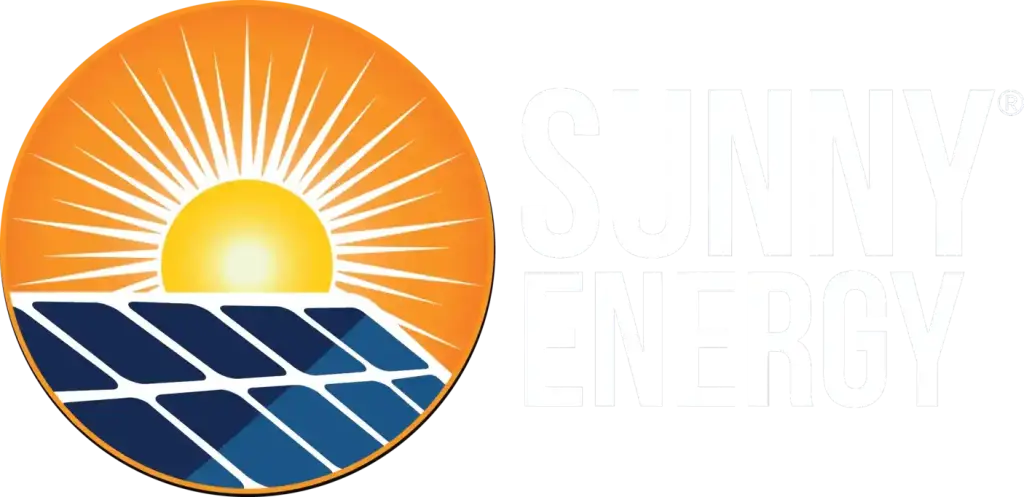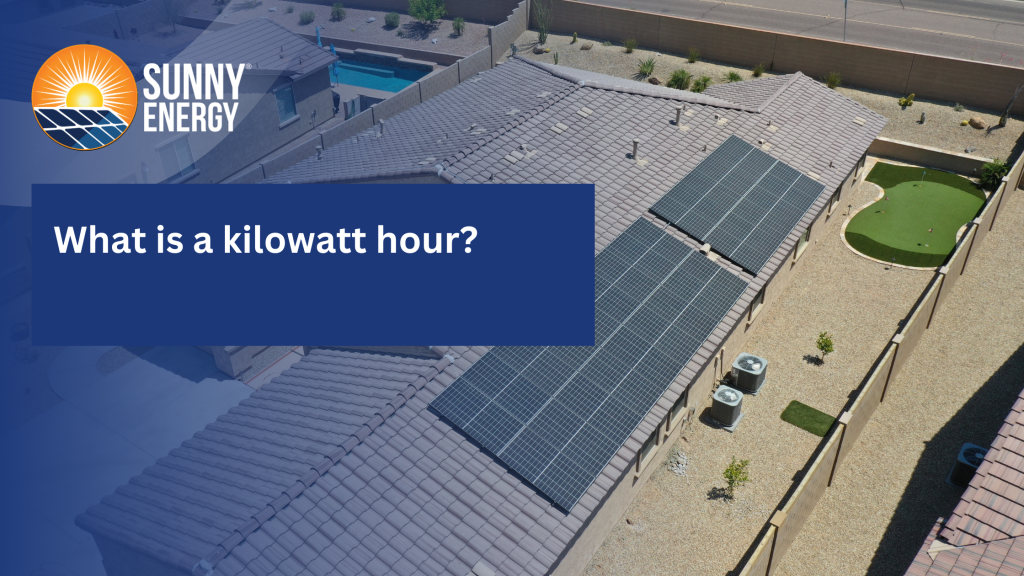Solar energy has emerged as a leading contender in the race towards sustainable power sources, with solar panels being the backbone of this green revolution. One crucial aspect of solar panels is their efficiency, which dictates how effectively they can convert sunlight into electricity. In this blog we will understand factors influencing efficiency of a solar panel, choosing the right type of solar panels for your home and its durability. We will also discuss the role of efficiency of a solar panel in meeting renewable energy needs.
Understanding efficiency of a solar panel
Solar panel efficiency is a measure of how effectively a solar panel converts sunlight into usable electricity. It is typically expressed as a percentage, with higher efficiency panels converting more sunlight into electricity. This efficiency is crucial because it determines how much electricity a solar panel can produce in a given area, making higher efficiency panels more cost effective and space efficient.
Factors influencing efficiency of a solar panel Type of Solar Cell Technology: Different types of solar cell technologies have varying efficiency rates. For example, monocrystalline silicon panels are known for their high efficiency, while thin-film panels are typically less efficient but can be more affordable.
- Quality of materials: The quality of materials used in the manufacturing of solar panels can significantly impact their efficiency. High-quality materials can improve performance and longevity.
- Temperature: Efficiency of a solar panel decreases as temperature increases. This is because higher temperatures can reduce the conductivity of the solar cells, leading to a decrease in efficiency.
- Shading: Shading from trees, buildings, or other obstructions can reduce the amount of sunlight reaching the solar panels, thereby decreasing efficiency of a solar panel.
- Angle and orientation: The angle and orientation of the solar panels relative to the sun can also impact their efficiency. Panels that are angled correctly and facing the sun can capture more sunlight and generate more electricity.
Types of Solar Panels
There are three main types of solar panels based on the type of solar cell technology used: monocrystalline silicon panels, polycrystalline silicon panels, and thin-film panels. Each type has its own efficiency rate and characteristics that make it suitable for different applications.
1. Monocrystalline silicon panels
Monocrystalline silicon panels are made from a single crystal structure, which gives them a uniform appearance and high efficiency. These panels typically have an efficiency rate ranging from 15% to 22%, with some premium models achieving even higher efficiency levels. Monocrystalline panels are known for their high efficiency and long lifespan, making them a popular choice for residential and commercial installations where space is limited.
2. Polycrystalline silicon panels
Polycrystalline silicon panels are made from multiple silicon crystals, which are melted together to form a single panel. These panels are slightly less efficient than monocrystalline panels, with efficiency rates ranging from 13% to 16%. However, polycrystalline panels are more affordable to produce, making them a cost-effective option for larger installations where space is not a constraint.
3. Thin-film panels
Thin-film panels are made by depositing a thin layer of photovoltaic material onto a substrate, such as glass or plastic. These panels are the least efficient of the three types, with efficiency rates typically below 12%. However, thin-film panels are lightweight, flexible, and less expensive to produce than crystalline silicon panels, making them suitable for applications where weight and flexibility are important factors.
Choosing the right type of solar panel
When choosing a solar panel type, it is essential to consider factors such as efficiency of a solar panel, cost, space availability, and installation requirements. Monocrystalline silicon panels are ideal for applications where space is limited, and high efficiency is essential. Polycrystalline silicon panels are a good choice for larger installations where cost-effectiveness is a priority. Thin-film panels are suitable for applications where weight and flexibility are important considerations, such as on roofs with limited load-bearing capacity or in portable solar applications.
Efficiency of a solar panel under various conditions
Solar panel efficiency is influenced by a variety of environmental factors, which can impact the amount of sunlight reaching the panels and their ability to convert it into electricity. Understanding these factors is crucial for optimizing the performance of solar panel systems.
1.Temperature
Temperature plays a significant role in solar panel efficiency. High temperatures can reduce the efficiency of a solar panel, as they can cause the semiconductor material in the panels to become less conductive. This phenomenon, known as the temperature coefficient, means that solar panels become less efficient as temperatures rise. On the other hand, cooler temperatures can improve efficiency, leading to higher electricity production.
2.Shading
Shading from trees, buildings, or other obstructions can significantly impact solar panel efficiency. When a solar panel is partially shaded, the shaded cells can act as a barrier, preventing the flow of electricity generated by the unshaded cells. This can reduce the overall efficiency of the panel. It is important to minimize shading by selecting an installation location with minimal obstructions and ensuring that panels are not shaded during peak sunlight hours.
3.Panel orientation and tilt angle
The orientation and tilt angle of solar panels also affect their efficiency. Solar panels should ideally be oriented towards the sun to maximize the amount of sunlight they receive. In the northern hemisphere, panels should face south, while in the southern hemisphere, panels should face north. The tilt angle of the panels should also be optimized based on the latitude of the installation location to maximize sunlight exposure throughout the year.
4.Impact on system design
Considering these factors is essential when designing and installing solar panel systems to maximize their efficiency. Designers must account for potential shading from nearby objects, choose the optimal tilt angle and orientation for the panels, and consider the impact of temperature on panel performance. By carefully considering these factors, solar panel systems can be optimized to generate the maximum amount of electricity possible, making them a more cost-effective and sustainable energy solution.
The durability of solar panels
The durability of solar panels is a critical factor to consider when evaluating their performance and longevity. High-quality solar panels are designed and manufactured to withstand various environmental conditions and continue to generate electricity reliably for many years. Here’s a closer look at the factors that contribute to the durability of solar panels:
1.Materials and construction
High-quality solar panels are made from durable materials that can withstand harsh weather conditions. The solar cells are typically encapsulated in a durable, weatherproof material such as tempered glass, which protects them from damage. The frame of the solar panel is also important, as it provides structural support and helps protect the panel from impacts and stresses.
2.Resistance to weather conditions
Solar panels are exposed to a wide range of weather conditions, including hail, wind, snow, and extreme temperatures. High-quality panels are designed to withstand these conditions without sustaining damage. For example, the tempered glass covering the solar cells is designed to be impact-resistant, protecting the cells from damage due to hail or debris.
3.Longevity
The longevity of solar panels is an important consideration, as they are expected to generate electricity for 25 years or more. High-quality panels are designed to have a long lifespan, with minimal degradation in performance over time. This ensures that the panels can continue to generate electricity reliably for many years, making them a cost-effective investment.
4.Impact on performance
The durability of solar panels can impact their performance over time. Panels that are damaged or degraded may not be able to generate as much electricity as they did when they were new. This can reduce the overall efficiency of a solar panel system and may require maintenance or replacement of the panels.
The role of efficiency of a solar panel in meeting renewable energy needs
Efficiency of a solar panel is essential for meeting renewable energy needs because it maximizes the amount of electricity generated from sunlight. This efficiency of a solar panel is crucial as the world transitions towards a greener future, aiming to reduce reliance on fossil fuels and combat climate change.
1.Maximizing electricity generation
Efficiency of a solar panel can convert a higher percentage of sunlight into electricity, leading to increased energy production. This is particularly important in areas with limited space for solar installations or where maximizing energy output is critical.
2.Reducing reliance on fossil fuels
By generating more electricity from sunlight, efficient solar power systems can help reduce the reliance on fossil fuels for electricity generation. This is significant because fossil fuels are finite resources and contribute to air pollution and greenhouse gas emissions.
3.Combatting climate change
Solar power is a clean and renewable energy source that produces no greenhouse gas emissions during operation. By harnessing solar energy more efficiently, we can reduce our carbon footprint and mitigate the impacts of climate change.
4.Promoting sustainability
Efficiency of a solar panel promotes sustainability by providing a renewable energy source that can meet current and future energy needs without depleting natural resources or causing environmental harm.
Conclusion
Efficiency of a solar panel is a critical factor in the widespread adoption of solar energy. Understanding the factors that influence efficiency of a solar panel, identifying the most efficient types of solar panels, and recognizing the role of efficient solar power in meeting renewable energy needs are all essential steps towards a sustainable future powered by the sun.
Solar energy is a key player in the shift towards renewable energy sources, and the efficiency of solar panels is crucial in this transition. Sunny Energy, a leading Arizona solar company, can help you determine how many solar panels your house needs through a personalized consultation process. By assessing your energy usage, roof space, and other relevant factors, Sunny Energy’s experts can recommend the optimal number of solar panels to meet your energy needs efficiently. This personalized approach ensures that you maximize your solar investment and enjoy the benefits of clean, renewable energy.
Sunny Energy’s dedication to affordability, quality, and customer satisfaction makes them the best solar company in Arizona. By choosing Sunny Energy, you’re not only investing in a sustainable future powered by the sun but also in the expertise of top-rated solar companies in Arizona. Their commitment to excellence has made them one of the best Arizona solar companies, offering superior services compared to other solar power companies in Arizona. Whether you’re looking for Arizona solar contractors or simply searching for solar power companies near me, Sunny Energy stands out as a trusted choice among Solar Arizona companies.
With Sunny Energy’s expertise and commitment to quality, you can trust that your solar panel system will be designed and installed to deliver the most efficient and cost-effective solution for your home. By choosing the best solar company in Arizona, you can be confident that you’re investing in a sustainable future powered by the sun.




